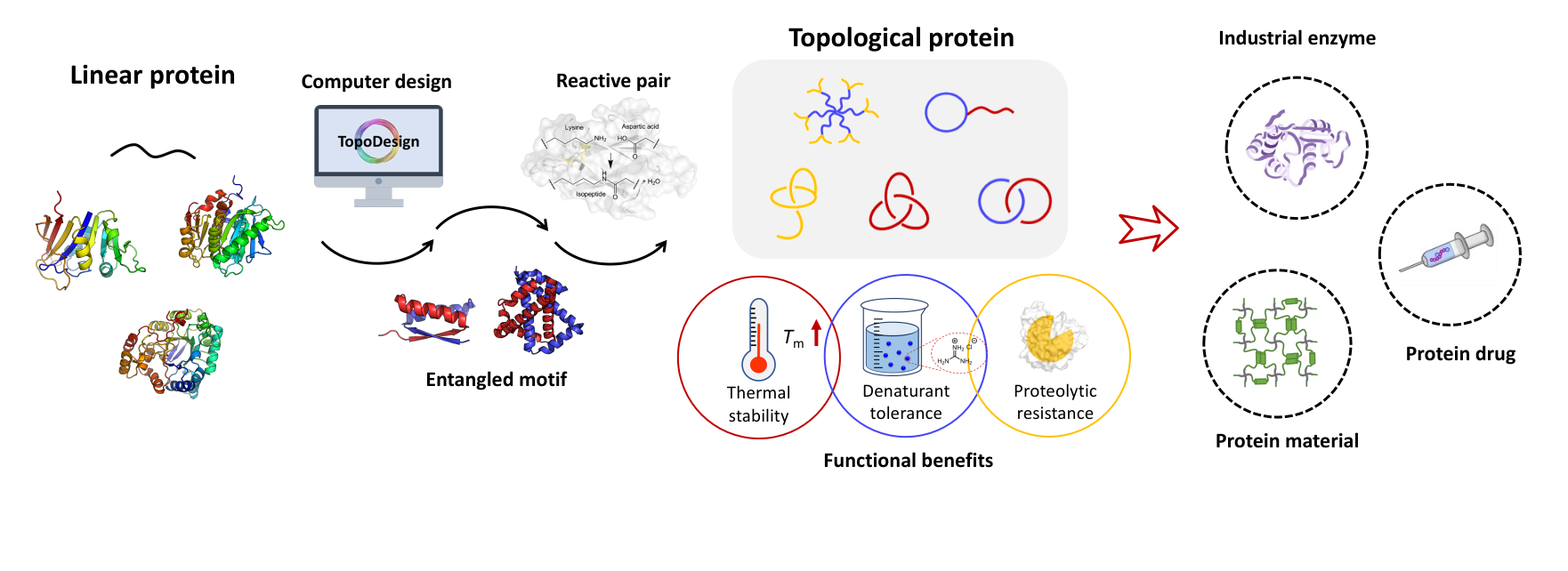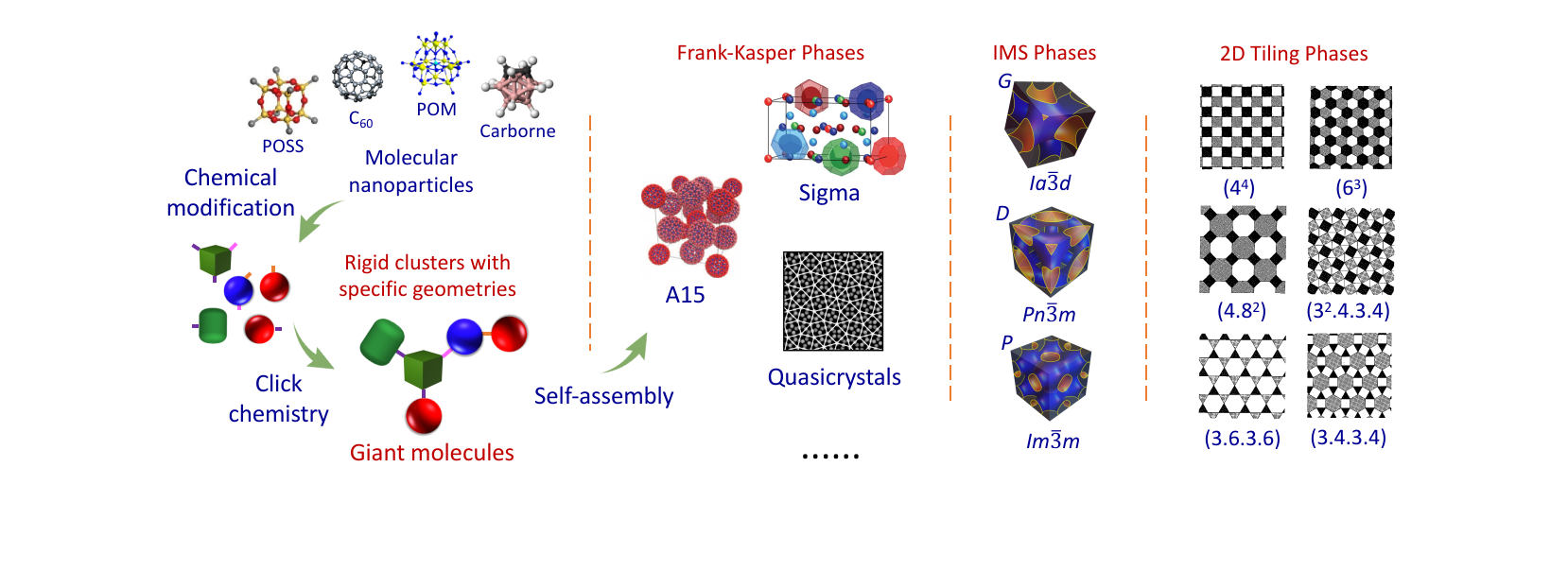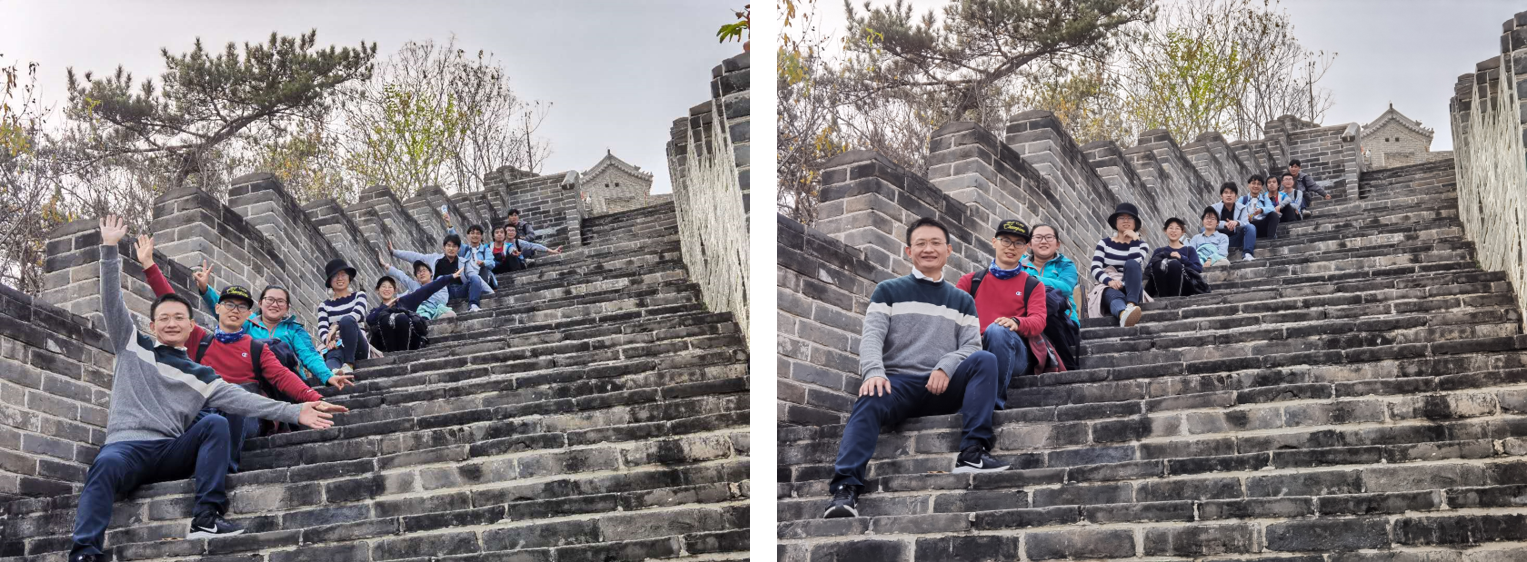箴言
----------------------------------------------
-----------------------------------------------
在科学上没有平坦的大道,只有那些不畏艰险沿着陡峭山路攀登的人,才有希望达到光辉的顶点。
----马克思
-----------------------------------------------
合作研究
------------------------------------------
请有兴趣的研究组联系我们。欢迎任何形式的合作,尤其是在自组装、水凝胶以及生物医药等方向的合作。
------------------------------------------
请有兴趣的研究组联系我们。欢迎任何形式的合作,尤其是在自组装、水凝胶以及生物医药等方向的合作。
------------------------------------------
研究成果
75. Geometry induced sequence of nanoscale Frank–Kasper and quasicrystal mesophases in giant surfactants. Proc. Natl. Acad. Sci. USA, 2016, 113, 14195-14200
发布时间:2017-02-04
Kan Yue, Mingjun Huang, Ryan L. Marson, Jinlin He, Jiahao Huang, Zhe Zhou, Jing Wang, Chang Liu, Xuesheng Yan, Kan Wu, Zaihong Guod, Hao Liua, Wei Zhanga, Peihong Ni, Chrys Wesdemiotis, Wen-Bin Zhang, Sharon C. Glotzer, and Stephen Z. D. Cheng.Geometry induced sequence of nanoscale Frank–Kasper and quasicrystal mesophases in giant surfactants. Proc. Natl. Acad. Sci. USA, 2016, 113, 14195-14200 [Link]

Abstract
Frank–Kasper (F-K) and quasicrystal phases were originally identified in metal alloys and only sporadically reported in soft materials. These unconventional sphere-packing schemes open up possibilities to design materials with different properties. The challenge in soft materials is how to correlate complex phases built from spheres with the tunable parameters of chemical composition and molecular architecture. Here, we report a complete sequence of various highly ordered mesophases by the self-assembly of specifically designed and synthesized giant surfactants, which are conjugates of hydrophilic polyhedral oligomeric silsesquioxane cages tethered with hydrophobic polystyrene tails. We show that the occurrence of these mesophases results from nanophase separation between the heads and tails and thus is critically dependent on molecular geometry. Variations in molecular geometry achieved by changing the number of tails from one to four not only shift compositional phase boundaries but also stabilize F-K and quasicrystal phases in regions where simple phases of spheroidal micelles are typically observed. These complex self-assembled nanostructures have been identified by combining X-ray scattering techniques and real-space electron microscopy images. Brownian dynamics simulations based on a simplified molecular model confirm the architecture-induced sequence of phases. Our results demonstrate the critical role of molecular architecture in dictating the formation of supramolecular crystals with “soft” spheroidal motifs and provide guidelines to the design of unconventional self-assembled nanostructures.





